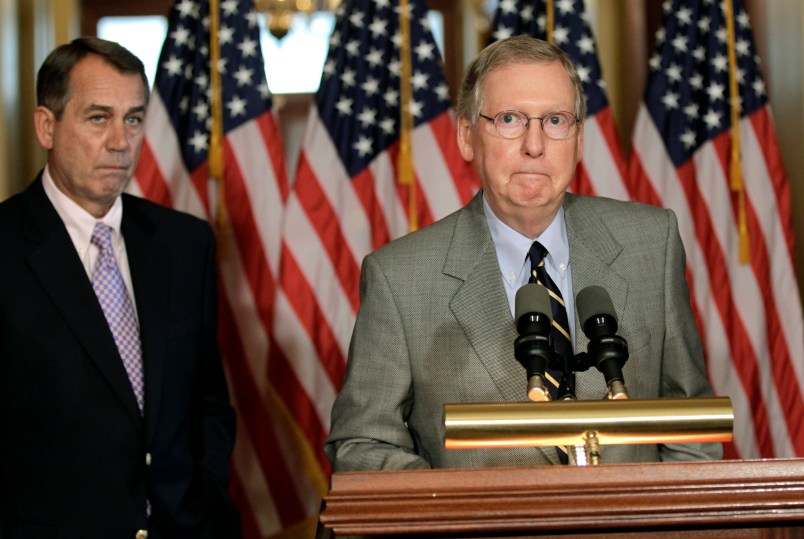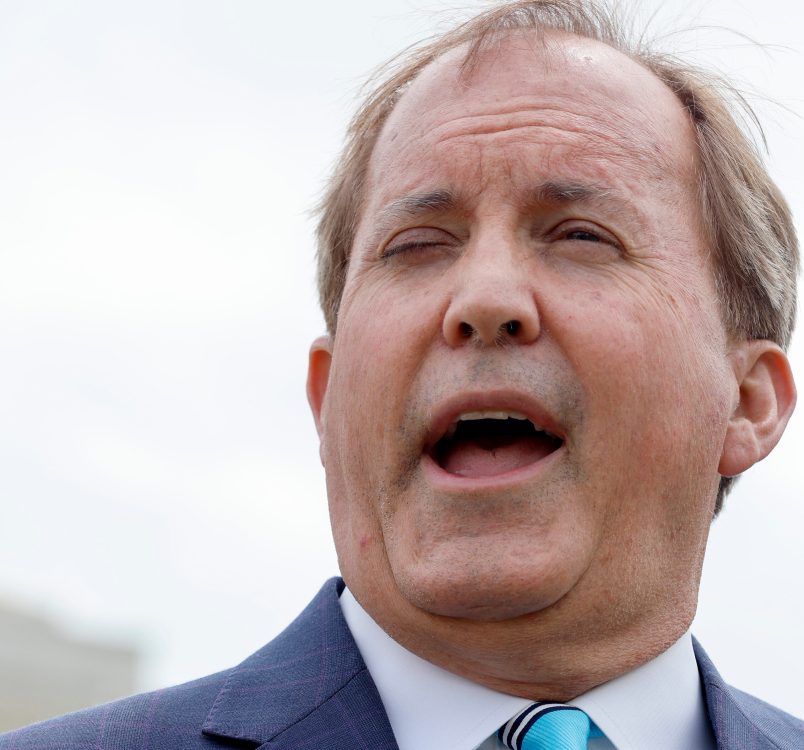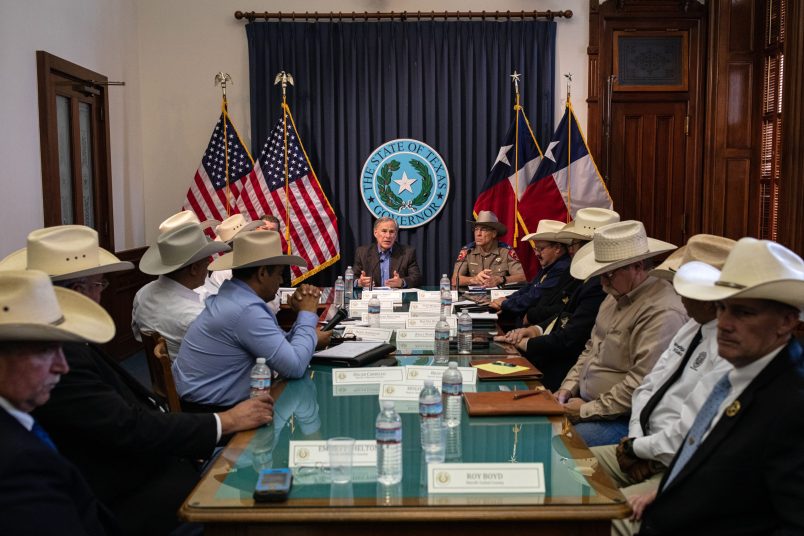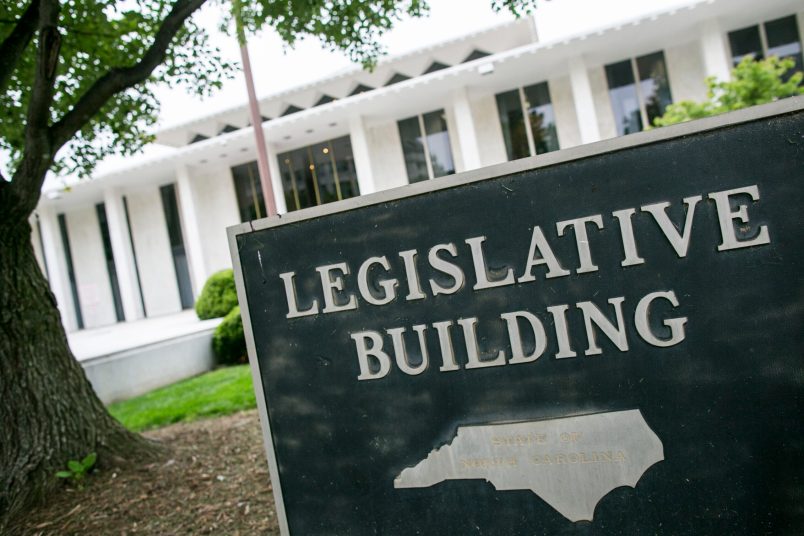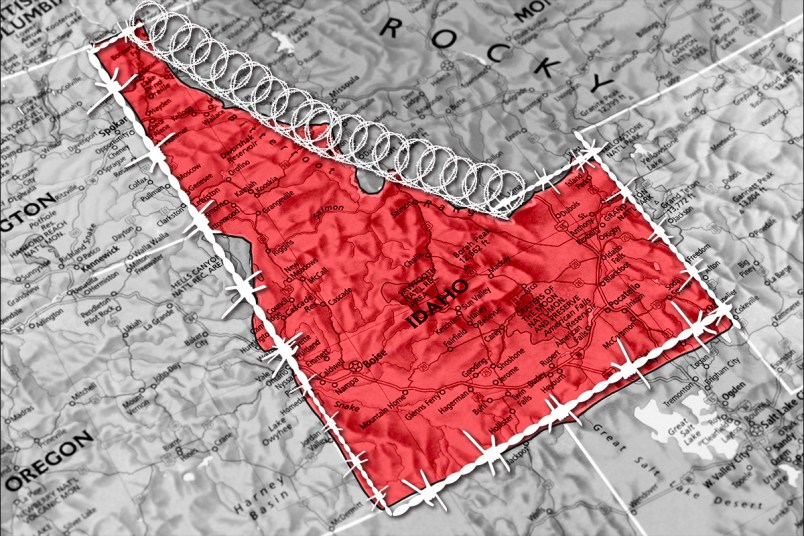Even before it got to the Supreme Court, the latest challenge to Obamacare baffled the people who drafted the law and tracked its passage. Reporters, Hill staff, Congressional Budget Office analysts — nobody recalled Congress intending for the law’s crucial subsidies to be limited to state-run exchanges and invalid on the federal HealthCare.gov.
That’s what the King v. Burwell plaintiffs allege, though. In recent days, weeks and months, more and more evidence has emerged that nobody who was involved thought that the law works the way its opponents now say it does. As The New Republic’s Brian Beutler put it last week, the conservative version of events “has crossed the fuzzy line dividing revisionist history from X-Files-style conspiracy theory.”
Those supporting the challenge dismiss the findings as ex post facto and irrelevant to the case. But nevertheless, here are some of the latest bits of evidence to emerge.
GOP-Backed 2011 Bill Assumed Subsides In Every State
Brian Beutler at The New Republic reported recently on a 2011 bill that would appear to seriously undermine the plaintiffs’ case. The bill, supported by Republican after taking over the House, repealed some of the reporting requirements for businesses. They’d paid for that, which cost about $20 billion, by putting stricter rules for people who receive too big of a subsidy.
The rub, as Beutler detailed, is that the bill, which Republicans voted overwhelmingly for, assumed every state would have subsidies. CBO scored it that way and the GOP backed it. But at that point, some states had already decided that they would use the federal exchange. The 2011 bill doesn’t make any sense with the understanding of the law that the King plaintiffs put forward.
State Officials Didn’t Think Subsidies Were At Risk
The Washington Post’s Greg Sargent talked last week with a number of Republican state officials who were involved in deciding to default to the federal exchange. None of them, he found, believed that subsidies would be unavailable in their state because of that decision.
“There was no discussion at any meeting that one of the reasons we would want to do a state based exchange was that it would be the only way we would get subsidies,” Cindi Jones, who worked on health reform under Virginia Gov. Bob McDonnell (R), told Sargent.
Dem Sen. Ben Nelson Doesn’t Back Plaintiffs
The King plaintiffs cite then-Sen. Ben Nelson (D-NE) in their brief, noting that he had argued in favor of state-based exchanges and even suggested that states be pressured to implement them. But, as the Huffington Post’s Jonathan Cohn reported Thursday, Nelson recently sent a letter to Sen. Bob Casey (D-PA), cited in an amicus brief supporting the law, that said he never thought that the subsidies would be limited to state exchanges.
“I always believed that tax credits should be available in all 50 states regardless of who built the exchange,” Nelson wrote. “The final law also reflects that belief as well.”
HealthCare.gov States Are Arguing For Subsidies
Officials from 11 states using HealthCare.gov, largely but not exclusively led by Democrats, signed onto an amicus brief filed in the case that argues subsidies should be available in every state regardless of what type of exchange it has.
“The evidence marshaled above, and by others, shows that Amici States here, and officials in nearly every State, lacked any notice, let alone clear notice, that adopting an FFE would deprive citizens of billions in subsidies and destabilize State insurance markets,” they wrote.
It should be noted that some Republican-led states using HealthCare.gov nonetheless argued that the tax credits should be invalid.
Paul Ryan Thought Subsidies Would Go Everywhere, Too
As TPM’s Sahil Kapur reported earlier this month, House Ways and Means Chair Paul Ryan (R-WI) made comments in 2010 that also seem to undercut the case against Obamacare. He said that “everybody in the country” would have access to “a brand-new entitlement” in the form of the subsidies.
“Ryan expressed no doubt that the relevant language in the bill (which remained in the final version) would apply the subsidies to Americans of a certain income level regardless of where in the country they lived,” Kapur wrote.


